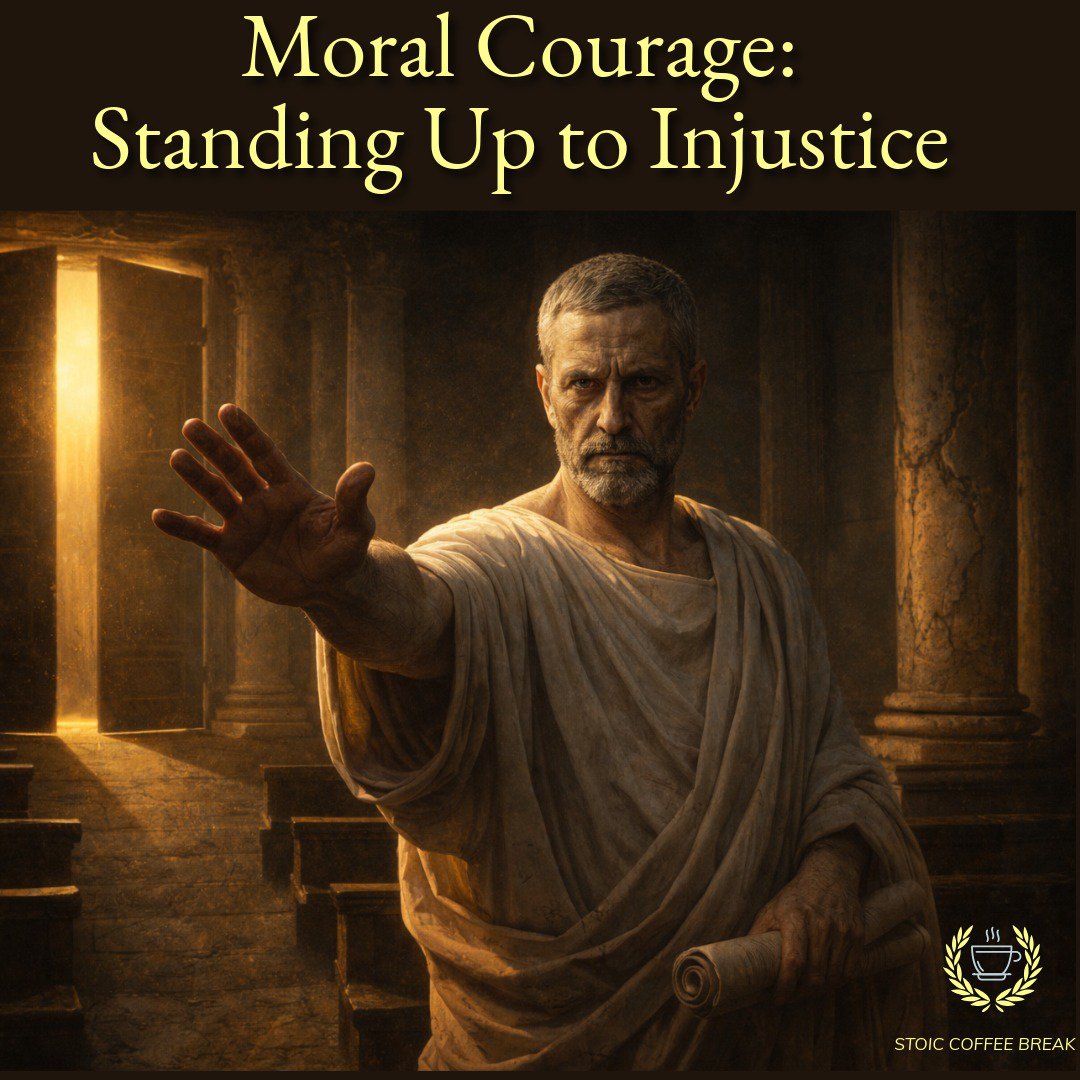
Do you lie? Do you believe that everyone lies? Why are some lies acceptable? Why should we allow people to lie without repercussions? Today I want to talk about the different kinds of lies and deceptions, and what we can do to be a bit more honest, and a little more aware when others are trying to deceive us.
“We tell lies, yet it is easy to show that lying is immoral.”
— Epictetus
Why do we lie?
For most people, we lie because it gets us what we want. When we lie, it implies that we either want to gain something by deceit, or that we know what is best for the person and have the right to impose our will on them.
Sometimes we lie because it greases the social wheels and avoids conflict. Like when we tell someone that their hair looks great even when it doesn’t, it’s because we don’t want the other person to feel bad. We’re keeping the social situation from getting uncomfortable or awkward. When someone asks how we are doing and we say we’re doing fine, even when aren’t, it’s because we don’t really want to talk about it.
In other cases we lie to avoid punishment or to somehow avoid the consequences of telling the truth. In my own life, I often lied to my father to avoid getting beaten because of something that he disapproved of. I would lie at church so that I didn’t get in trouble with the bishop. In either case, telling the truth was something that was not rewarded, so like any self-preserving person I would simply tell them what I thought they wanted to hear.
Sometimes we lie to inflate our importance and impress others. We may embellish a story that we tell to others to get them to like us or think more highly of us. We may make our accomplishments on our resume sound more impressive than they really are so that we can get that job that we want.
Sometimes we lie to manipulate or control others. By deceiving others we may get them to do what we want. We see this in political rallies all the time. There are some politicians who will simply say what they think others will want to hear even if they know they aren’t true. Whether that’s demonizing others with differing politics or those that are weaker or have no political power, they say things that will get others riled up because when people are upset about something they’re easier to control.
We Want to Believe
“Liars are the cause of all the sins and crimes in the world.”
— Epictetus
So why do we fall for lies? Why do we believe some people even when they don’t have the facts on their side?
For the most part, we fall for lies because as humans we want to believe other people. Society runs smoother and generally works better when we assume that others are telling the truth. The benefits of believing that others are communicating honestly outweighs the cost of being deceived from time to time. Also, most lies that people tell are usually inconsequential and cause little or no harm.
Because we generally believe others, or at least want to believe others, it makes us particularly gullible, and targets for those who are good at deceiving others. Timothy Levine, a professor at the University of Alabama at Birmingham and author of Duped: Truth-default Theory and the Social Science of Lying and Deception writes:
“People are typically honest unless they have a specific reason to communicate deceptively, and people tend to believe others unless suspicion, skepticism, or doubt is actively triggered”.
Another big problem is that we all like to think that we are able to know when people are lying to us. But in study after study, we’re not that good it. We tend to believe people that sound confident and self-assured, even if they are misleading us.
One of the most interesting aspects of deception is when we look at it through the lens of the Dunning-Kruger effect. The Dunning-Kruger effect is a cognitive bias where someone overestimates their knowledge and abilities in an area, but lack the metacognition to recognize their own incompetence. They will speak with strong opinions as if they’re an expert, yet they really know very little.
When it comes to deception, this has an effect on both sides. Because we tend to trust others when starting out, when someone speaks confidently we tend to believe them. And on the receiving end, because we think we are experts at knowing when people lie to us, we overestimate our own ability to know when others lie to us.
Future Liars… um… Leaders
“False words are not only evil in themselves, but they infect the soul with evil.
— Plato
“The men the American people admire most extravagantly are the most daring liars; the men they detest most violently are those who try to tell them the truth.”
— H. L. Mencken
Susan Cain, in her book Quiet: The Power of Introverts in a World That Can’t Stop Talking talked about how she was in an information session for prospective Harvard Business School students. They were told that they should “speak with conviction…even if you believe something only 55%, say it as if your believe it 100%”.
Think on that for a moment. These are MBA students at one of the top business schools in the world. These are future managers and leaders of companies. Rather than working with data to come to conclusions that are sound and well founded, with exceptions clarified and doubts well-aired so that they can prepare for them, they are instructed to lie in order to get people to follow them. It’s as if their being trained to emulate the Dunning-Kruger effect.
One high profile case of this includes Elizabeth Holmes who defrauded investors of hundreds of millions of dollars with her biotech startup Theranos. Her ability to project confidence and believe in the product that her company was selling even though she knew it didn’t work got some of the biggest inventors in Silicon Valley to put money into her company.
Sam Bankman-Fried, who was the founder of FTX, which at one point was one of the largest crypto trading firms was so convincing about his abilities that he defrauded investors and traders out of billions of dollars. When FTX fell apart, the effect rippled through the crypto markets and even into the larger financial sector.
Confirmation Bias
“It is discouraging how many people are shocked by honesty and how few by deceit.”
— Noel Coward
Often times we believe others because it’s something that we want to believe. Confirmation bias is when we tend to look for evidence that something we want to believe is true and ignore contradictory evidence. This happens because we want to believe things that align with our opinions or fears. The more evidence we find that supports our ideas, the better we feel about ourselves. We gain confidence in ourselves because we feel like our opinions are correct. It soothes the ego, and bolsters the identity that we have of ourselves. In other words, we like to feel like we are right.
Confirmation bias is also a cognitive shortcut. It’s often a way to deal with ambiguous situations or ones where we don’t have enough information. We latch onto an idea because we need some clarity, and search for anything that confirms our idea so that we’ll be able to move forward. If we remain in doubt for too long or wait until we have enough information we might get stuck and not take any action at all.
Look in the Mirror
“My philosophy means keeping that vital spark within you free from damage and degradation, using it to transcend pain and pleasure, doing everything with a purpose, avoiding lies and hypocrisy, not relying on another person's actions or failings. To accept everything that comes, and everything that is given, as coming from that same spiritual source.”
— Marcus Aurelius
“This is an era of universal hyperbole. Every day delivers a new banality disguised as an emergency. Distrust your first reactions. Begin with the assumption that you are overreacting. Conserve your emotional energies for your real concerns.”
— @TheStoicEmperor (twitter)
So how do we make sure that we don’t fall into the trap of deceiving others? How can we get better about being truthful ourselves so that we don’t spread misinformation?
Most of us think that we’re honest and that we don’t lie to others. But if we’re really being honest with ourselves, we all lie and deceive to some extent. We may not even notice it. We might not be directly honest with someone or we will omit things because we don’t want to hurt their feelings, or we’re afraid that they will get mad at what we have to say. We also need to be aware of when we are not taking responsibility for ourselves. We may obfuscate or omit details so that we shift blame or lessen the consequences of our actions.
I think within each situation we need to act according to our principles. We also need to think about what we are trying to accomplish. Just because something is true and you are trying to be honest doesn’t mean that it needs to be brought up. Sometimes there are things that just don’t need to be said because they are are not important to the conversation.
But, with that said, it is not an excuse to not have difficult conversations. Sometimes, candor is exactly what is needed so that there can be clear communication and mutual understanding. In both situations it comes down to thinking about handling yourself according to your principles. Are you treating the other person with kindness? When you are speaking candidly, are you using it as a way to belittle or manipulate the other person? There are ways to be candid and yet show discretion and still hold to your principles.
Be willing to recognize that you could be wrong. Just because you hold an opinion about something doesn’t mean that it is correct, or that it even matters. When you get new information, be willing and open to changing your opinion. There is nothing wrong with changing your mind. In fact, the more you are willing to change your mind, the easier it is to grow.
You can also ask yourself if you even need to have an opinion about this thing. Does it matter if you have an opinion about it? Does holding that opinion make you more or less compassionate to others? Does it help you to be kinder to everyone around you? If it doesn’t then maybe you need to reexamine your opinion, and maybe even get rid if it.
Lately, ask yourself is it possible that the opposite is true? Be willing to look at something that you believe strongly in and try to hold the opposite opinion and see things from a different point of view. Taking the time to make sure that you can see the world from a different perspective can help you to see the world in a better light.
Honestly
“We swallow greedily any lie that flatters us, but we sip only little by little at a truth we find bitter.”
— Denis Diderot
“Everything we hear is an opinion, not a fact. Everything we see is a perspective, not the truth.”
— Marcus Aurelius
So what can we do to be more aware of when we’re being lied to?
A lot of why we believe people who lie to us is that they are often telling us the things that we want to hear. They are things that already align with our point of view or opinions. They feed our ego. We need to be willing to be skeptical about our own beliefs. We need to be willing to adjust our opinions. We need to be like a scientist and work with the best information that we have, and change our opinions and our point of view when we get new data.
Like most things, I think that we need to be clear about what our principles are. When we are clear about our principles, then it doesn’t matter who we are listening to or what they are saying because if it doesn’t align with our principles we can disregard it, or at the very least examine it dispassionately.
When we get too attached to who is saying something, then we often lose our objective point of view. It doesn’t matter what political party, gender, race, or any other difference that someone has, we should view what they have to say with how well it aligns with our principles, regardless of who they are. When we stick to our principles, then the message matters more than the messenger.
Watch your emotions. If you are getting really emotional about something, there’s a good chance you’re being manipulated. People who are masters of deception will play off your emotions as much as they can. When you are feeling a strong emotion about something, it’s easier override your rational thinking, and you’re more likely to make impulsive and irrational decisions. Learning to be dispassionate when you need to be can help you to take a step back and objectively look at what others are trying to convince you of.
Trust but verify. Next, verify from the most reputable sources you can find. Look at the track record of the places you get your information from. How often have they been wrong in the past? How often to they present opinions as facts? Part of the reason that we have institutions and agencies in our governments is so that they carry on the practices and procedures that help us move forward as a society. Often people who are trying to deceive us will attack those very institutions to further their own agendas.
Opinion vs facts. Be careful when someone states their opinion about something as a fact. We see this on news channels all the time, especially when it comes to politics. When someone states something as being true that sounds like an opinion, challenge them. Ask them for the facts to back up the things that they are saying. Often simply asking for the data or where they got their information from will expose that they either made it up, or they will actually get you the information that you requested.
This happened to me a few years ago when a friend contacted me and was trying to convince me of some pretty far fetched conspiracy theories. I told him that I’d need to see some real data from some reliable sources. He kept telling me to “do my own research” and I would “find the truth”. I kept politely asking him for his sources so that we could be on the same page. When he couldn’t offer me any reputable resources he just got more and more upset till he finally got so angry that he blocked me.
When it comes to political arguments, a good sign that the person you’re listening to is trying to deceive you or convince you of something that probably isn’t good for society is when they demonize or dehumanize others. Blaming others for what’s wrong in your life or the world is a typical tactic of demagogues. If someone can’t convince you of something using rational arguments and clear data and has to resort to tearing down others to try and win you over to their side, that should be a good indicator that someone is trying to manipulate you.
Conclusion
There’s lots of BS in the world. It’s been even said that we live in a post truth world because there is so much disinformation online. People hold onto their opinions so tightly that we can’t even agree on the basic facts of what’s going on to the point where it’s hard to know what the truth is.
The best way to handle ourselves in this chaotic environment is to make sure that we verify our information from reputable sources. We need to be aware when someone is trying to manipulate us through our emotions. We can filter what we hear through the lens of our principles so that we are not too attached to the opinions of any particular person or group. We can take the time to be a little skeptical of everything we hear. And most importantly we should be willing to question our own opinions, and change them when necessary because in doing so, we can grow and move a little closer to the truth.
Hello friends! Thanks for listening.
Want to take these principles to the next level? Join the Stoic Coffee House Community!
Stop by the website at stoic.coffee where you can sign up for our newsletter, and buy some great looking shirts and hoodies at the Stoic Coffee Shop.
Like the theme song? You can find it here from my alter ego. 🙂
Find me on instagram, threads, or twitter.
Lastly if you know of someone that would benefit from or appreciate this podcast, please share it. Word of mouth is the best way to help this podcast grow.
Thanks again for listening.


